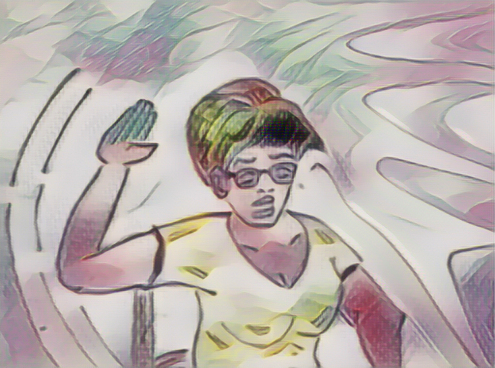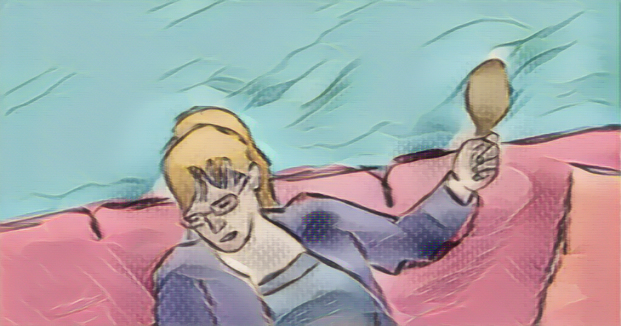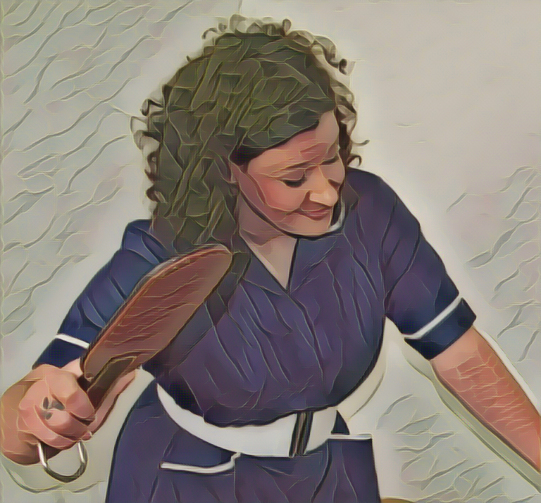(gap: 2s) My younger days were rather like a patchwork quilt, assembled from a multitude of places and faces. I moved between care homes, foster families, and those rare, treasured days spent with my own parents. There was always affection in our family, but money was exceedingly scarce. My mother and father—let us call them Margaret and Harold, for they were as gentle and well-intentioned as any Margaret or Harold one might imagine—simply could not provide for my sisters and me as they wished. The weight of poverty pressed upon us, and at times, the only recourse was to send us away, hoping we would find better care elsewhere.
(short pause) When we were together, our home glowed with a peculiar warmth. The sitting room would ring with laughter as my sisters and I played, while Mother moved briskly about, her presence both comforting and formidable. There was a sense of security, a feeling that, no matter how little we possessed, we belonged to one another. Discipline, when it came, was gentle—a sharp word here, a light slap there, but never anything that left a mark, neither upon our skin nor our hearts.
(pause) The world outside our home, however, was quite another matter. In the care and foster homes of the 1950s, everything was drab and institutional. The walls were painted in colours that made one feel insignificant, and the air always carried a faint scent of disinfectant. These places were not designed for comfort or affection; they were designed for order. My sisters and I soon learned that kindness was rare, and rules were enforced with a firm hand. The shadows of those years still flicker at the edges of my happiest recollections.
(short pause) Yet, in those stiff, rule-bound places, something rather curious took root in me—a fascination with the rituals of discipline, especially corporal punishment. It is odd to admit, but the formal, almost ceremonial nature of some punishments captured my young imagination. There was plenty of random roughness, which I disliked, but the structured punishments—delivered with a sense of purpose—sparked a curiosity that lingered for years.
(pause) I recall one home in particular, where I stayed for about sixteen months. Unlike the others, this one attempted to resemble a real family. The staff encouraged us to call them ‘Auntie’ and ‘Uncle,’ and there were only about ten of us living there at a time. It was less crowded, less noisy, and for a while, I almost felt as though I belonged.
(short pause) The heart of the home was Auntie Joan, the matron, and her husband, Uncle Arthur. They lived among us, their lives interwoven with ours in a manner that was both comforting and a little daunting. Uncle Arthur was a distant figure, looming in the background, but when discipline was required, he could be summoned to deliver a sharp lesson with his belt—usually at Auntie Joan’s request.
(pause) Auntie Joan herself was a whirlwind. I remember her always in motion, wiping her hands on her apron, her eyes as keen as a hawk’s. She had a no-nonsense approach to discipline: if one misbehaved, one would receive a proper smacking, without question. In retrospect, I realise this was probably against the rules, but the home had its own code. I once told a social worker about being smacked, hoping for a little sympathy, but she merely shrugged and said I had probably deserved it. That was the world in which we lived.
(short pause) A typical smacking from Auntie Joan was swift and certain. She would crook her finger, summoning you with a look that permitted no argument. One learned quickly to obey, for hesitation only made matters worse. Even the boys who struggled the most—those with crooked legs or stammers—understood the routine. The waiting was often worse than the punishment itself.
(pause) The actual punishment lasted only ten or twenty seconds, but the sting lingered. There were never any bruises, but the lesson was clear. It was a strange mixture of pain and relief—pain from the smacking, relief that it was over and one could return to the day’s activities.
(short pause) But there is one incident, as vivid in my mind as an illustration by Quentin Blake, that stands out above all the rest. It was a day of ordinary mischief, the sort that arises in any house full of younger ones. A girl in the home—let us call her Susan—had taken to teasing me, calling me ‘Percy Pickle’ in a singsong voice that echoed through the corridors. The name itself was harmless, but the manner in which she said it, with a sly glint in her eye, made my cheeks burn with indignation.
(pause) Auntie Joan, ever vigilant, became aware of the commotion. She swept into the room like a gust of wind, her apron fluttering and her shoes clicking smartly on the linoleum. The room fell silent, as if a spell had been cast. With a single, imperious gesture, she pointed to Susan. “Come here, young lady,” she said, her voice as crisp as autumn leaves. Susan’s bravado melted away, and she shuffled forward, her head bowed, her plaits swinging like the pendulum of a grandfather clock.
(short pause) Auntie Joan seated herself upon the sturdy wooden chair in the centre of the room, the very throne of justice. She took Susan gently but firmly by the wrist and, with a practised motion, guided her over her knee. The rest of us watched, wide-eyed and breathless, as if witnessing a scene from a storybook—one of those moments when right and wrong are drawn in bold, unmistakable lines.
(pause) The punishment itself was not cruel, but it was certainly memorable. Auntie Joan’s hand rose and fell with a steady rhythm, each smack punctuated by a sharp, echoing sound that seemed to fill the room. Susan’s face flushed crimson, and she bit her lip, determined not to cry. The whole affair lasted perhaps half a minute, but to us, it felt like an eternity. When it was over, Susan was set gently on her feet, her dignity wounded far more than her person.
(short pause) For a moment, no one spoke. Susan’s eyes glistened, but she did not shed a tear. Auntie Joan regarded her with a mixture of sternness and affection, and then, with a nod, dismissed her. The lesson had been delivered, not only to Susan, but to all of us. We understood, in that instant, the curious blend of justice and mercy that governed Auntie Joan’s domain.
(pause) I remember feeling a strange mixture of satisfaction and sympathy. There was a certain justice in the punishment, but also a pang of empathy for Susan’s embarrassment. It was a spectacle, yes, but also a ritual—a moment that bound us together in the peculiar fellowship of childhood.
(short pause) There were other sorts of punishments, too. Bottom smackings, as we called them, were less common and always administered in private. As someone who was both fascinated and apprehensive about the ritual, I found these moments oddly compelling. The fear of pain was real, but so was the curiosity about the process itself.
(short pause) When one was sent for a private smacking, one would wait in Auntie Joan and Uncle Arthur’s office, nerves jangling. The room was small and plain, with a bench along one wall—the same bench where one would sit for social worker visits, often in tears for reasons that had nothing to do with discipline. The anticipation was almost unbearable.
(pause) Auntie Joan would eventually enter, her footsteps measured and deliberate. She would sit on the bench, look one in the eye, and say something like, “You need this, Peter.” Then, with practised hands, she would guide one over her knee and deliver the punishment. It was over quickly, but the sting and the shame lingered.
(short pause) Afterwards, one would be left alone on the bench, one’s bottom sore, one’s mind whirring. It was a time for reflection, or at least that is what Auntie Joan intended. Sometimes I would cry, sometimes I would simply sit in silence, waiting for her to return and dismiss me. Those moments alone were some of the loneliest of my childhood.
(pause) Looking back, I am grateful that the younger generation of today are spared these sorts of punishments, especially in care. The world has changed, and for the better. Still, my memories—painful, peculiar, and sometimes even cherished—are a part of who I am. There were many more incidents: other punishments, a few beltings, one caning, and, of course, the infamous slipper. But those are stories for another day, each one a thread in the patchwork of my childhood.







